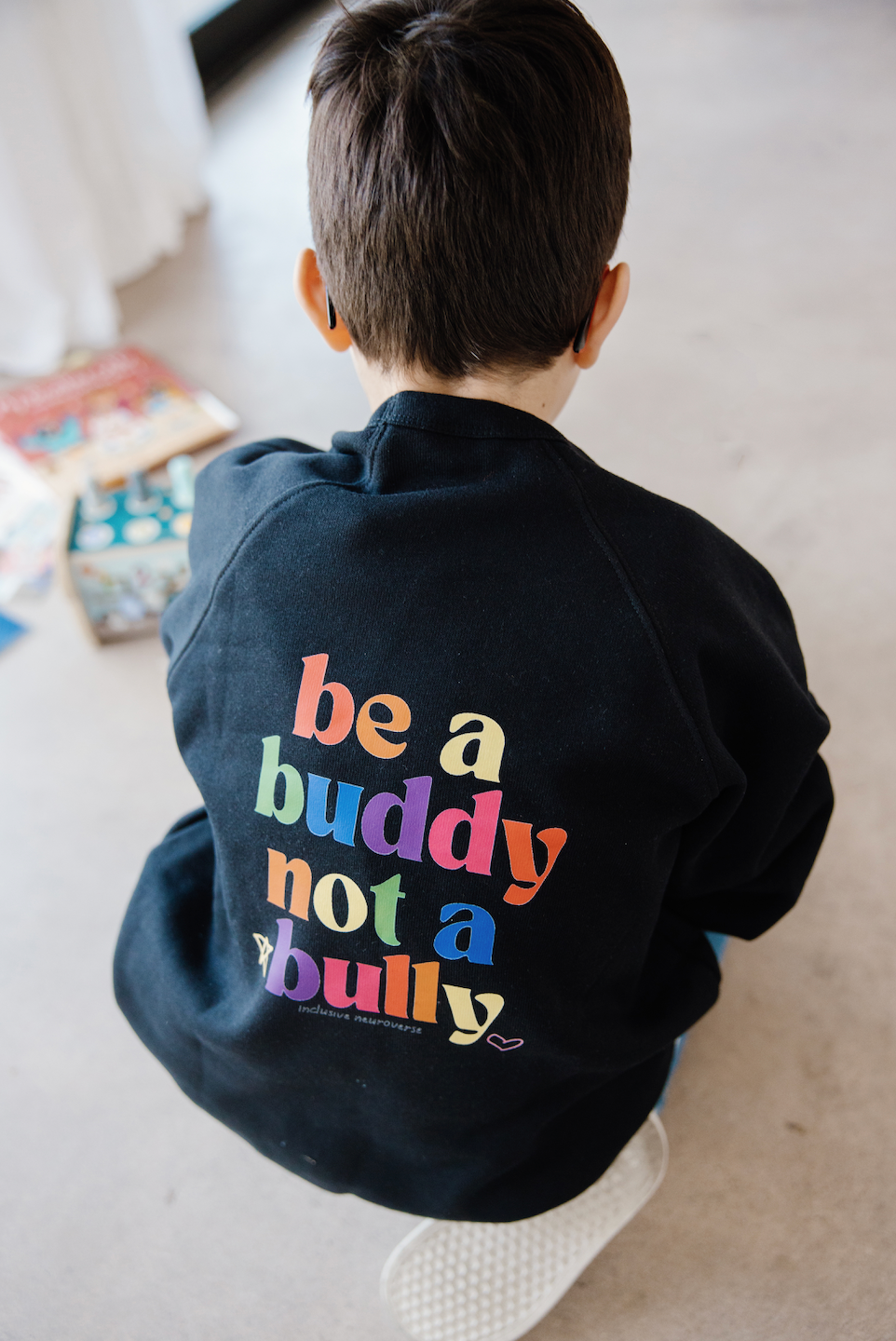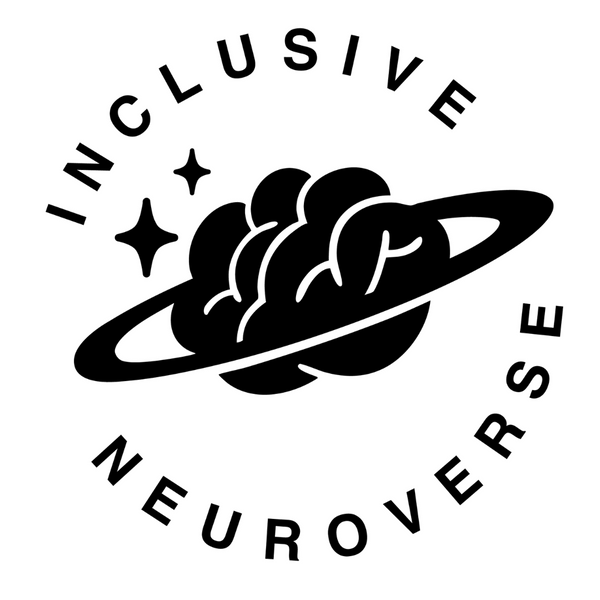
Be a buddy not a bully, why this matters so much.
Share
Let’s talk about something so important: being a buddy, not a bully. It’s such a simple idea, but it can make a huge difference in someone’s life, especially for those in the neurodivergent/disabled community.
Bullying doesn’t just hurt feelings; it can deeply affect mental health, self-esteem, and even someone’s future. And here’s the thing: being kind is just as contagious as being cruel. That’s why I created the Be a Buddy, Not a Bully collection—to remind everyone that kindness is the coolest thing you can wear.
Why it Matters
Did you know that 1 in 5 kids experiences bullying? For neurodivergent or disabled individuals, that number can be even higher. But here’s the good news: small acts of kindness, like standing up for someone or choosing to be inclusive, can create a ripple effect of positivity!
When you wear one of our “Be a Buddy, Not a Bully” t-shirts you’re making more than a fashion statement. You’re sparking conversations about mental health awareness and showing the world that kindness matters.

How You Can Help?
Teach Your Kids to Celebrate Differences
Kids are naturally curious, and that’s such a beautiful thing! As parents, caregivers, or educators, we can guide that curiosity in a way that fosters acceptance and understanding. Here are some simple ways to teach your kids to embrace and celebrate differences:
- Start Conversations Early: Talk to your kids about how everyone is unique. Whether it’s how someone looks, learns, or communicates, explain that differences are what make the world so interesting and beautiful.
- Lead by Example: Kids watch everything we do (seriously, everything!). Show them how you celebrate diversity in your own life, whether it’s by being kind to others, learning about different cultures, or supporting inclusive causes.
- Use Books and Media: There are so many amazing books, shows, and movies that highlight diversity and inclusion. Reading a story about a neurodivergent character or watching a movie or show with diverse representation can spark meaningful conversations.
- Encourage Empathy: Ask your kids questions like, “How do you think they feel?” when they see someone being treated unfairly or struggling. This helps them build emotional intelligence and compassion.
- Normalize Advocacy: Let them wear their values! A shirt from the Be a Buddy, Not a Bully collection can be a great way for kids to start conversations with their friends about kindness and inclusion.
Stand Up for Someone Being Treated Unfairly
Standing up for others doesn’t have to be a grand gesture—it can be as simple as speaking up or showing support. Here’s how you can empower yourself (and your kids!) to stand up for someone being treated unfairly:
- Use Your Voice: If you see someone being bullied or excluded, say something. A simple “Hey, that’s not okay” can make a huge difference. And if speaking up feels hard, even showing support by standing next to the person or offering a kind word can mean the world.
- Teach Kids to Be Upstanders: Help your kids understand the difference between being a bystander and an upstander. Role-play scenarios where they practice standing up for someone in a safe and respectful way.
- Build a Support Network: Encourage your kids to form friendships with others who value kindness and inclusion. When kids feel supported, they’re more likely to stand up for others.
- Model Bravery: Show your kids what it looks like to stand up for what’s right. Whether it’s advocating for someone at work, supporting a cause, or simply being kind to someone who’s struggling, your actions will inspire them.
- Wear the Message: Advocacy can be as simple as wearing a shirt or hat that spreads a positive message. Our Be a Buddy, Not a Bully collection is designed to help you (and your kids!) advocate for kindness and inclusion without even saying a word.
